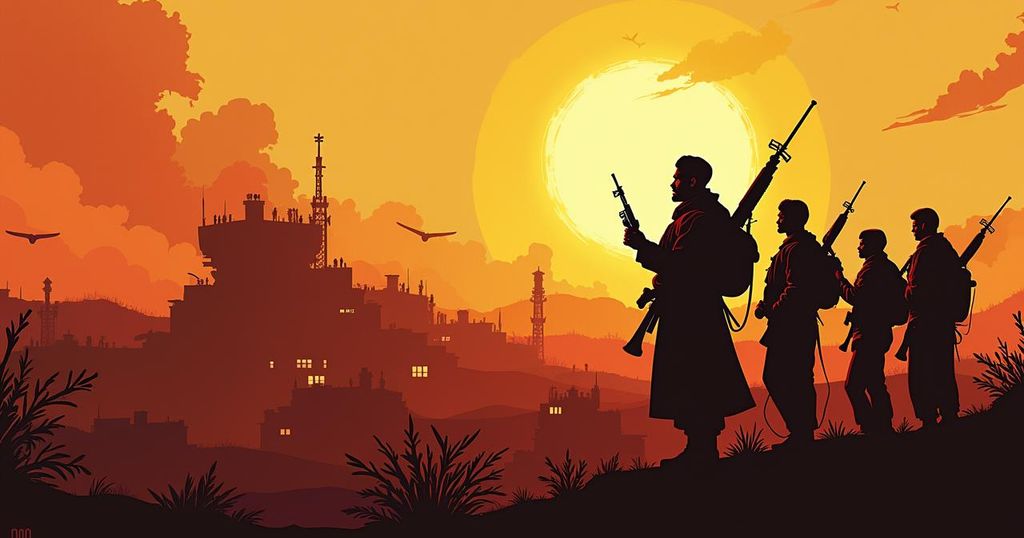Hezbollah’s Leadership Void Forces Iran to Reassess its Strategy
The assassination of Hezbollah’s leadership has intensified the internal debate within Iran regarding military responses to Israeli actions. The Iranian government, under reformist leadership, faces pressure from hardliners advocating for retaliation. Despite calls for a stronger stance, officials maintain that a direct confrontation with Israel could prove detrimental. As tensions rise, the strategic options available to Iran become increasingly limited, prompting discussions about rebuilding its influence through unconventional means.
The recent decapitation of Hezbollah following the killing of its chief, Hassan Nasrallah, and Brigadier General Abbas Nilforushan has escalated tensions within Iran. While the Iranian government, led by reformists, has stated that it will not deploy troops to Lebanon, hardliners are pressuring for a more aggressive response against Israel. Iran’s political landscape is fraught with division; conservatives have criticized the government’s restraint, alleging it emboldened Israeli aggression. Iran’s Foreign Ministry, represented by spokesperson Nasser Kanaani, maintains a stance that insists Israel’s provocations will be met with resistance, though without direct military involvement. President Masoud Pezeshkian’s handling of the situation has been scrutinized, particularly following claims that he received assurances from the US regarding a ceasefire in Gaza in exchange for restraint against Israel. This has led to accusations within the parliament that Tehran’s inaction has allowed Israel to operate with impunity, questioning the commitment of top leaders. The political milieu is further complicated by external narratives, including comments from Israeli Prime Minister Benjamin Netanyahu who suggested that Nasrallah’s elimination plays a pivotal role in altering the regional power dynamics. The sentiments expressed by figures outside the Iranian leadership, such as Jared Kushner, underscore the belief that Hezbollah’s weakened state leaves Iran vulnerable, demanding a strategic reassessment by Tehran. Experts argue that a direct military response against Israel would be counterproductive and may exacerbate Iran’s already tenuous position, suggesting alternate tactics such as rebuilding Hezbollah or employing covert operations, while also weighing the nuclear option as a long-term strategy. Overall, Iran finds itself at a crossroads, torn between maintaining its regional influence and managing internal pressures while reacting to external threats.
The geopolitical landscape surrounding Iran and Hezbollah has become increasingly complex due to escalating tensions with Israel. The killing of Hezbollah’s leader and a high-ranking Iranian general in Beirut has intensified domestic scrutiny of Iran’s military strategy, particularly regarding its support for its regional allies, including Hezbollah. The Iranian government faces internal divisions between reformist leaders advocating for diplomatic resolutions and hardliners clamoring for military retaliation against Israeli actions. This backdrop is critical for understanding Iran’s response options as it seeks to regain its deterrent capacity amid increasing external pressures.
In summary, the assassination of key Hezbollah figures has provoked significant debate within Iran about its military posture and response to Israeli aggression. The government currently seeks to balance the demands of hardline factions with the need to avoid direct conflict that could draw the United States further into the fray. While the risk of a retaliatory strike against Israel looms large, experts caution that such an action may further destabilize Iran’s position. Instead, there may be an inclination towards rebuilding Hezbollah and exploring alternative forms of resistance.
Original Source: www.theguardian.com




Post Comment